Cultural differences between Spain and Slovakia
Cultural differences between Spain and Slovakia
Hello everyone! Today, I am bringing you a blog post that, as you have read in the title, talks about the cultural differences that exist between Slovakia and Spain. As you know, I have now been living in Slovakia for a year and a half, so I can speak on respect of the customs of one country and others, and explain in which ways they are different. I think that the information that I am going to give you could be interesting, as in general, Slovakia is a country that people don't know a lot about - in terms of their customs and traditions. So without more ado, let's get started with the cultural differences between these two countries.
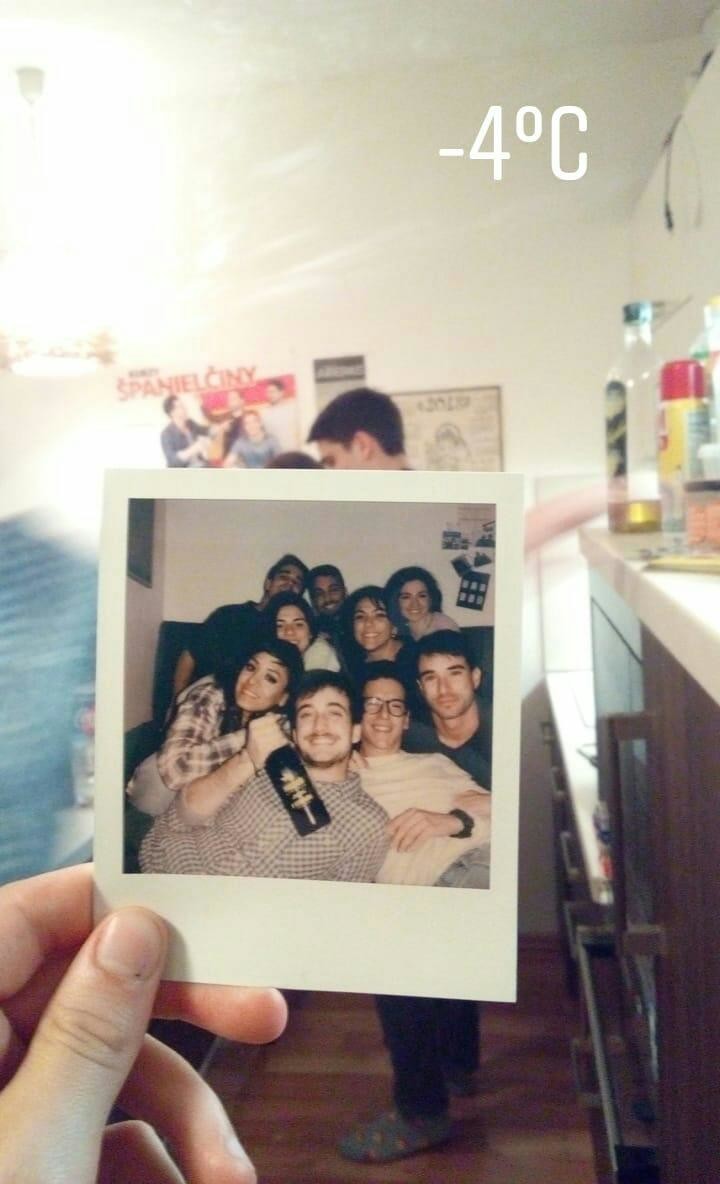
1. The timings.
In Slovakia, people get up early, work early, eat and have dinner early, and also go to bed early. The first time that a Spanish person goes abroad, this custom is the one that surprises them the most, but the truth is that it is us, the Spanish, who are weird. Basically, in the majority of European countries, the timings are quite similar to those in Slovakia. They wake up at 6 am, eat at 12 pm, eat dinner at 7 pm and lots of people go to sleep at 10 pm. On the other hand, Spanish usually get up at 7 am, eat at 2 or 3 pm (in summer even at 4 pm, especially for family meals! ) and eat dinner at 10 pm.
I remember that on my first Erasmus trip, in Wales, I lived with 9 other girls in my halls and they always laughed at my Spanish friend and I; as when they had just finished eating, we were starting to cook. Generally, when a Spanish person goes abroad, getting used to these different timings is quite difficult. However, I have to say that I am a big fan of the European timings, for me, it is a lot more convenient, and it really is one of the things that I like most about these countries, as I have never been a fan of eating or going to bed really late.
In terms of partying, it's the same thing. In Slovakia, people usually start drinking alcohol at 8 pm in the evening (this is unthinkable in Spain) and normally by 3 or 4 am they are already back home. In Spain, if we start drinking at midnight, it's already a complete miracle. And as you well know, people get home at 7 or 8 in the morning, after the club closes. There are even people who don't go straight home but go and get breakfast at a cafe. I know lots of people who went and did their Erasmus in Spain, and in order to go on a night out, they went to sleep and then set an alarm to wake up at midnight, to go out and drink in the street. It is normal that in Spain we do everything later on, as we have a lot more daylight hours than the rest of Europe. Saying that, for me, these timings are exhausting and thus I prefer to do everything to Slovakian timings.
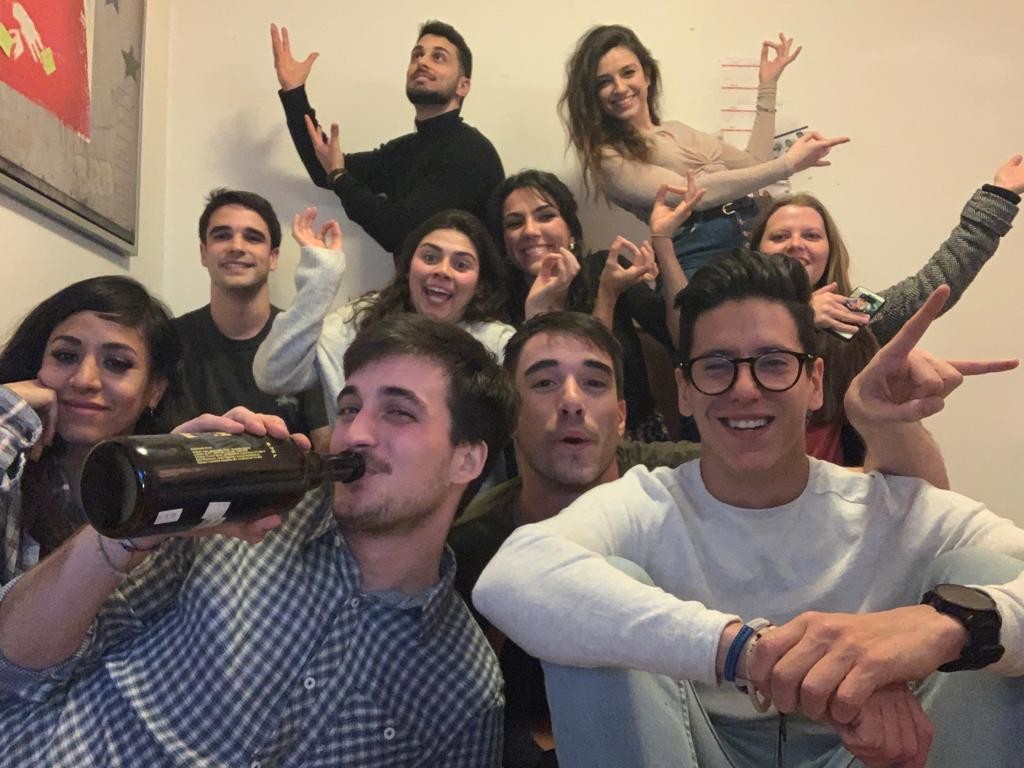
All this brings us to the famous siesta. Despite not everyone in Spain taking a siesta, for due to working hours lots of people aren't allowed to do it; as lots of people work from 9 am to 6 pm with a short break to eat, it is something that is done quite a lot, especially in summer or at the weekends. However, the idea of a siesta seems strange to Slovakians and almost funny, as for them it is something really weird.
2. Introductions, greetings and farewells.
In terms of formal meetings, in Spain, when we meet someone for the first time, the greeting is quite close-up. For example, it is quite common for us to give two kisses when we introduce ourselves to a stranger. However, in Slovakia the most usual thing is to offer our your hand for a hand shake although, there are exceptions. For this same thing, I had such an awkward experience when I tried to greet someone with two kisses on our first encounter. At the time, I felt like something hadn't gone right, as the person showed a certain reluctance and offered me their hand for a handshake. Obviously, there is no kind of conflict in these situations, it is just the two people understanding that there are cultural differences between us.
As for informal get-togethers, when we already know the person, us Spaniards usually greet each other with a hug, giving pats on the back. In fact, as you know, some people (usually men) make jokes between themselves, a rude joke, or even insulting each other when they greet each other.
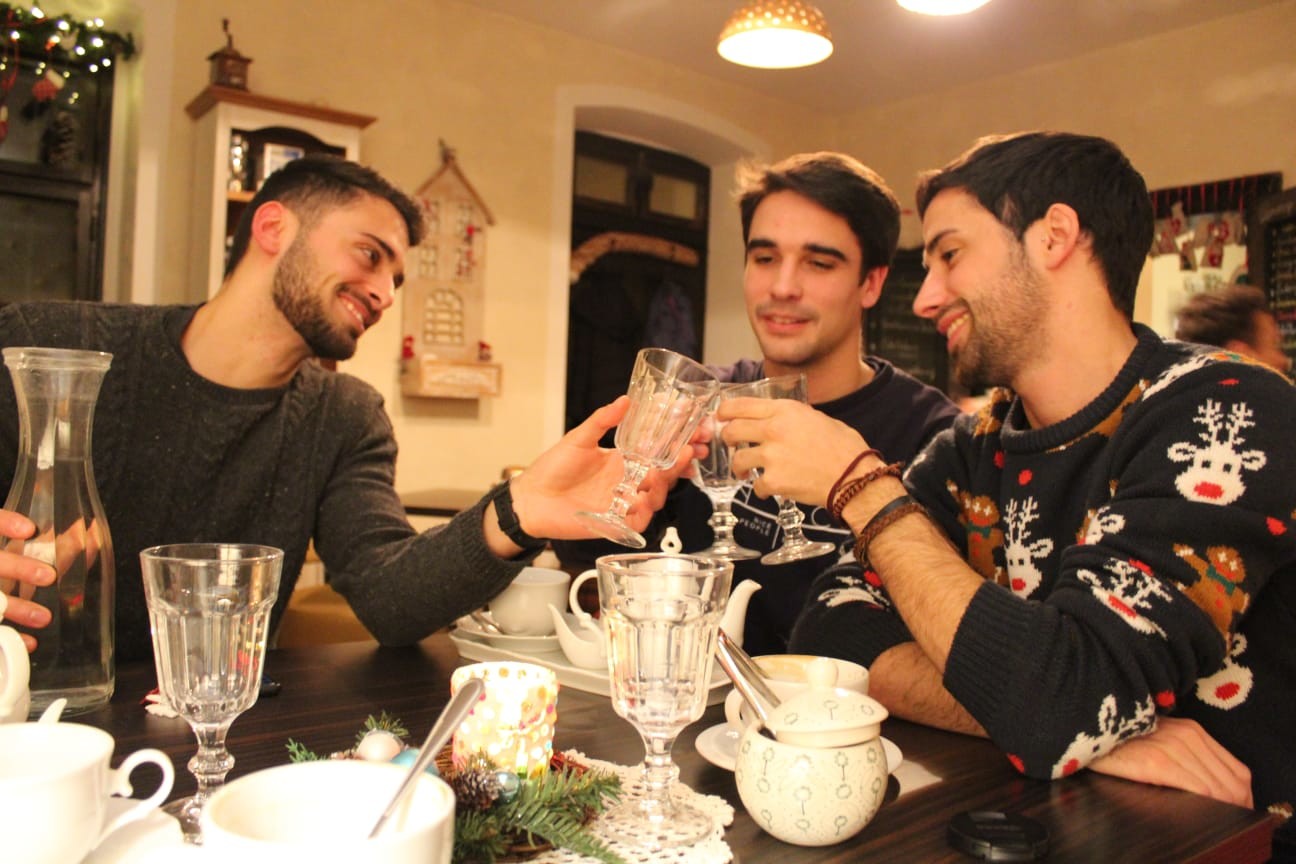
In addition, verbally, we aren't satisfied with a just an "hola", but we lengthen the phrase with an infinity of expressions “hola, tío, ¿qué tal? ¿cómo te va? Te veo estupendamente…" - "hey, man, how are you? How's it going? You look fantastic... "; and the same thing to say goodbye: “bueno, venga, me voy yendo ya que tengo que irme, nos vemos pronto, chao, chao” - "right, I'm going, I'm going now as I've got to go, I'll see you soon, chow, chow. " This is perfectly normal in Spain, however, in Slovakia saying goodbye is as simple as saying "chow" and a greeting is as simple as saying "hey. " There isn't as much enthusiasm involved. In addition, when Slovakian people greet each other, they don't have much physical contact either, unlike us in Spain. This rule is applied in the rest of Europe in general as well, except in countries like France for example, where their greetings are more Spanish style.
I remember a dinner in which we were a group of Spanish and Slovakians, and when we finished eating and left the restaurant and it was time to go back home; us Spanish stayed talking in the door (a normal occurrence) and a Slovakian girl came up to me and asked me "what are you doing here for all this time? ", to which I responded "we are saying goodbye"; because literally, we were saying goodbye, but it's just that us Spaniards like to take our time.
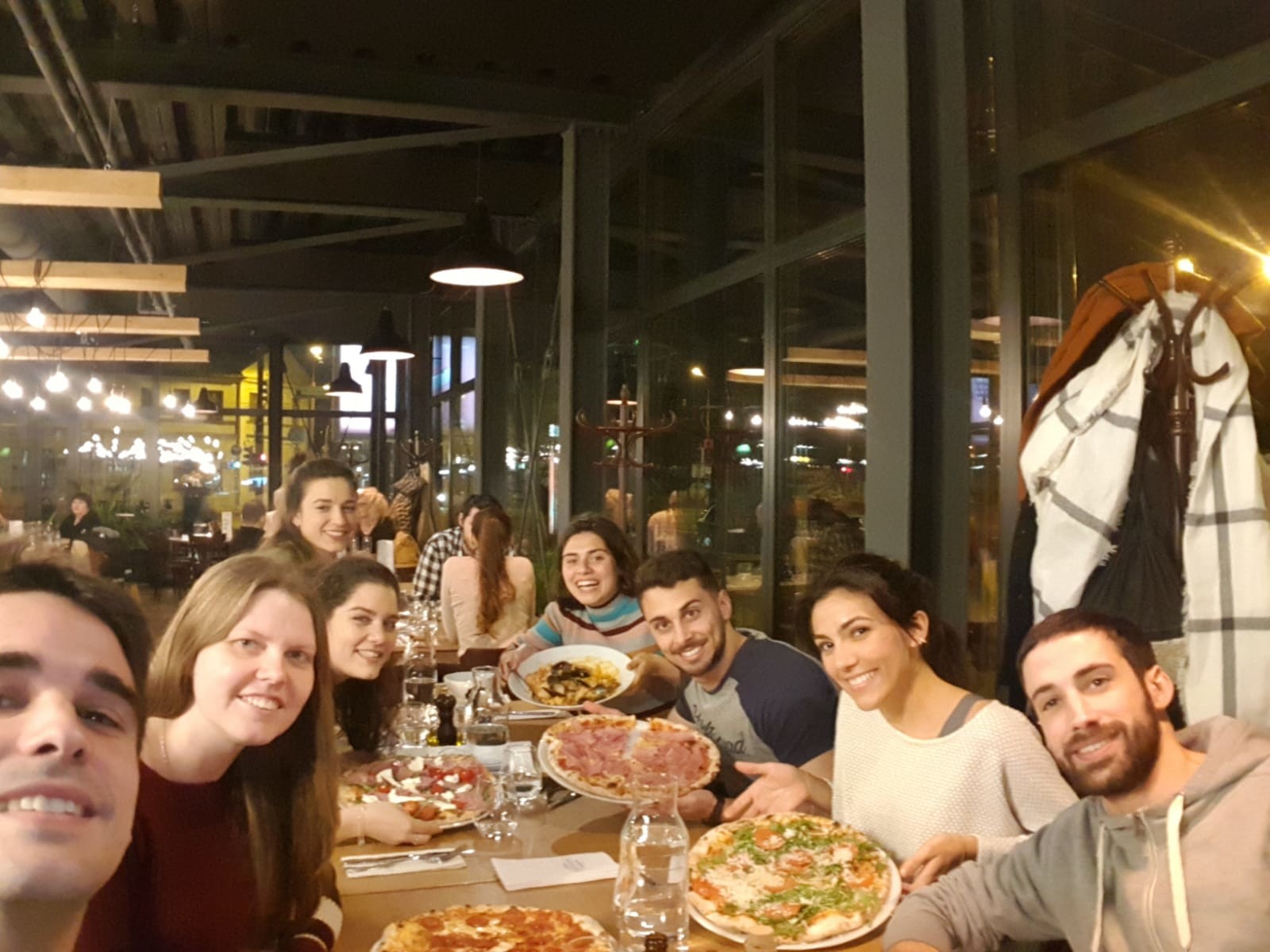
3. The weather.
Something that could shock Slovakian people, is that Spain isn't always sunny. Really, there is an incorrect stereotype about the weather in our country. When I spoke with Slovakian people and I said to them that in Galicia it rains a lot, they didn't believe it, because a lot of people associate Spain with the Mediterranean Ocean, Mallorca and Ibiza; forgetting the North and the low temperatures that we experience in the winter. In addition, they can't believe it when I tell them that in Spain there are lots of skiing areas all over the country. Lots of people think that Spanish people spend the whole year on the beach. Of course, in the North, this couldn't be further from reality.
As for Slovakia, I have to say that I had never expected such high temperatures in Bratislava, the capital. In summer, the heat is a sticky heat that I have never experienced in Galicia. Yes, it is true that I did expect the low temperatures, but the summer heat was completely unexpected. In fact, the highest and lowest temperatures that I have experienced in my whole life were both when I was in Bratislava.
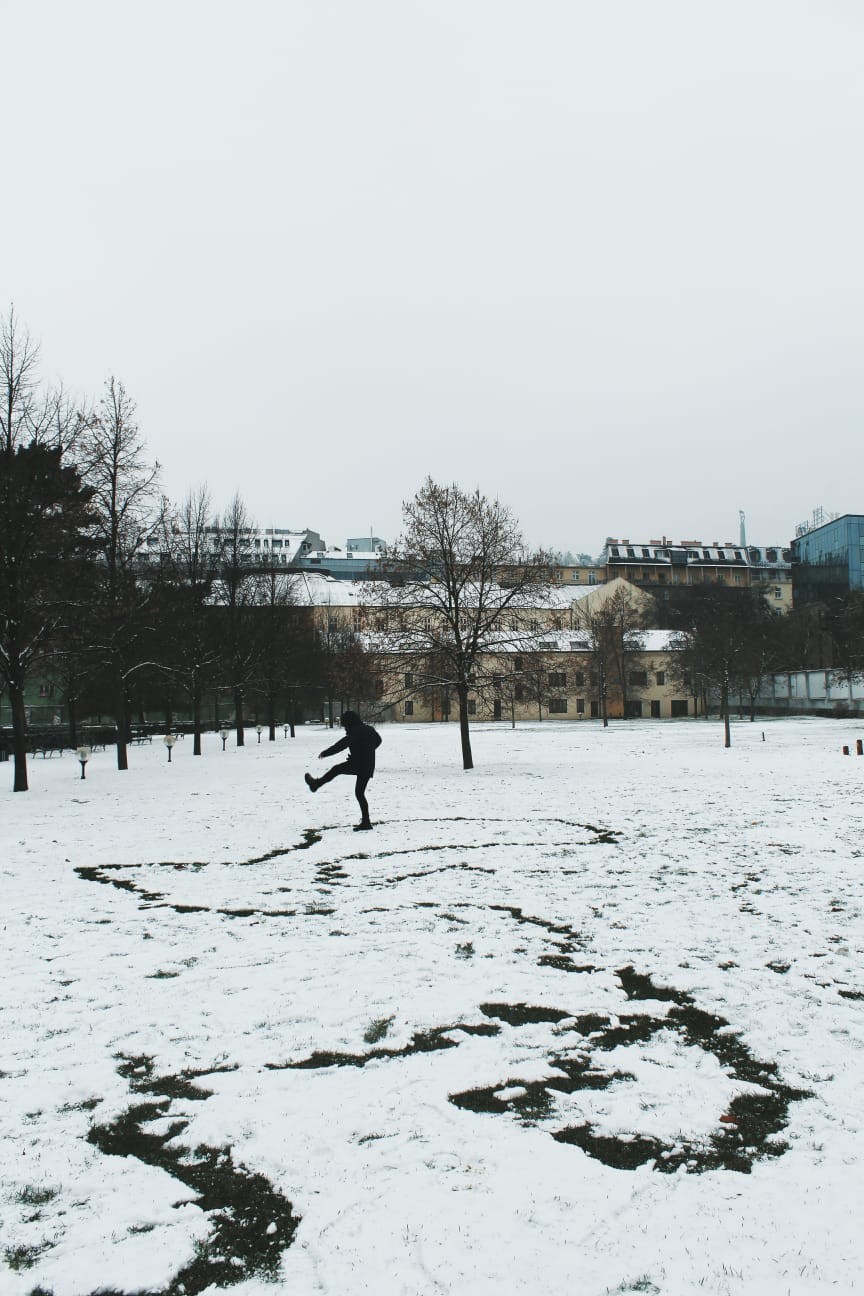
4. Presents for friends.
It is true that in Spain we give presents to our friends, but in Slovakia, this goes down on a whole other level. Spanish people usually do a little something once in a while for our friends, for example, giving them a souvenir when we've come back from a trip, or bringing them something to eat when someone invites us to their house... However, in Slovakia, it is normal to often give a present to your friends. This can create confusion between a Slovakian and a Spanish person, especially at the beginning of a friendship, as it could lead to a misunderstanding about the other person's feelings. In addition, the presents aren't the usual presents that I just mentioned (like bringing wine to a friend's house, a souvenir from a trip, etc. ) but quite elaborate and special presents. I have friends that each time they are with a boy, they will bring them something new on each date. Sometimes a top, other times a cake that they've just bought, sometimes they'll bake a dessert for her, and so on. In fact, lots of Slovakians have told me that for them, it is normal to go along the street or go to a shop window and if they see something that their friend would like, they'll buy it. Really, if you don't know this Slovakian custom, it's normal to think that the other person wants to be more than friends.
5. Taking off your shoes before going into the house.
In Slovakia, everyone takes off their shoes before going in the apartment of a friend, or in their own house. In Spain, this is really strange, as it is normal to be at home with your shoes on. It is true that at first, this shocked me, but the truth is that now I do it myself because it is hygienic and a lot more comfortable. In fact, I remember that once, a Slovakian plumber came to fix my broken tap, and before coming into my apartment, without me saying anything, the first thing that he did was to take off his shoes. That is unthinkable in Spain.
As you now know, if one day you go round the house of a Slovakian person, take off your shoes, and they will probably offer you some slippers to wear around the house. It's no big deal.
6. Window blinds
Do you know the phrase "you never know what you have until it's gone? " Normally you'd use it with transcendental concepts for the life of a person, but in my case, it happened to me with blinds. In Spain, this is something normal for everyone, it is weird not to have them in the house so that the sunlight doesn't wake you up in the mornings. However, in Slovakia, and in lots of places in Europe, it is weird to have blinds. The truth is that lots of houses have curtains, but everyone knows they don't do the same thing, as they don't conceal the light coming through 100 per cent.
Really, since I've lived in Slovakia, not having blinds is something that I still haven't got over. In fact, in my current room I have blinds in one window, but not the other, so we are in the same situation: the light still gets in. What's the point of that?
7. Food portions
In general, most Slovakian restaurants have far smaller portions than those in Spanish restaurants. The menu of the day in Slovakia costs around 5 euros. "How cheap! " you might think. But the reality is that if you are from Spain, the Slovakian menu is going to leave you with a half-empty stomach. The first time that I went back to Spain after having lived for almost a year in Slovakia and I went to a restaurant, as I had the Slovakian mindset in terms of portions, I ordered 3 dishes to share with the person I went with. Imagine our surprise when we ate the first dish and we almost couldn't finish it. Take note.
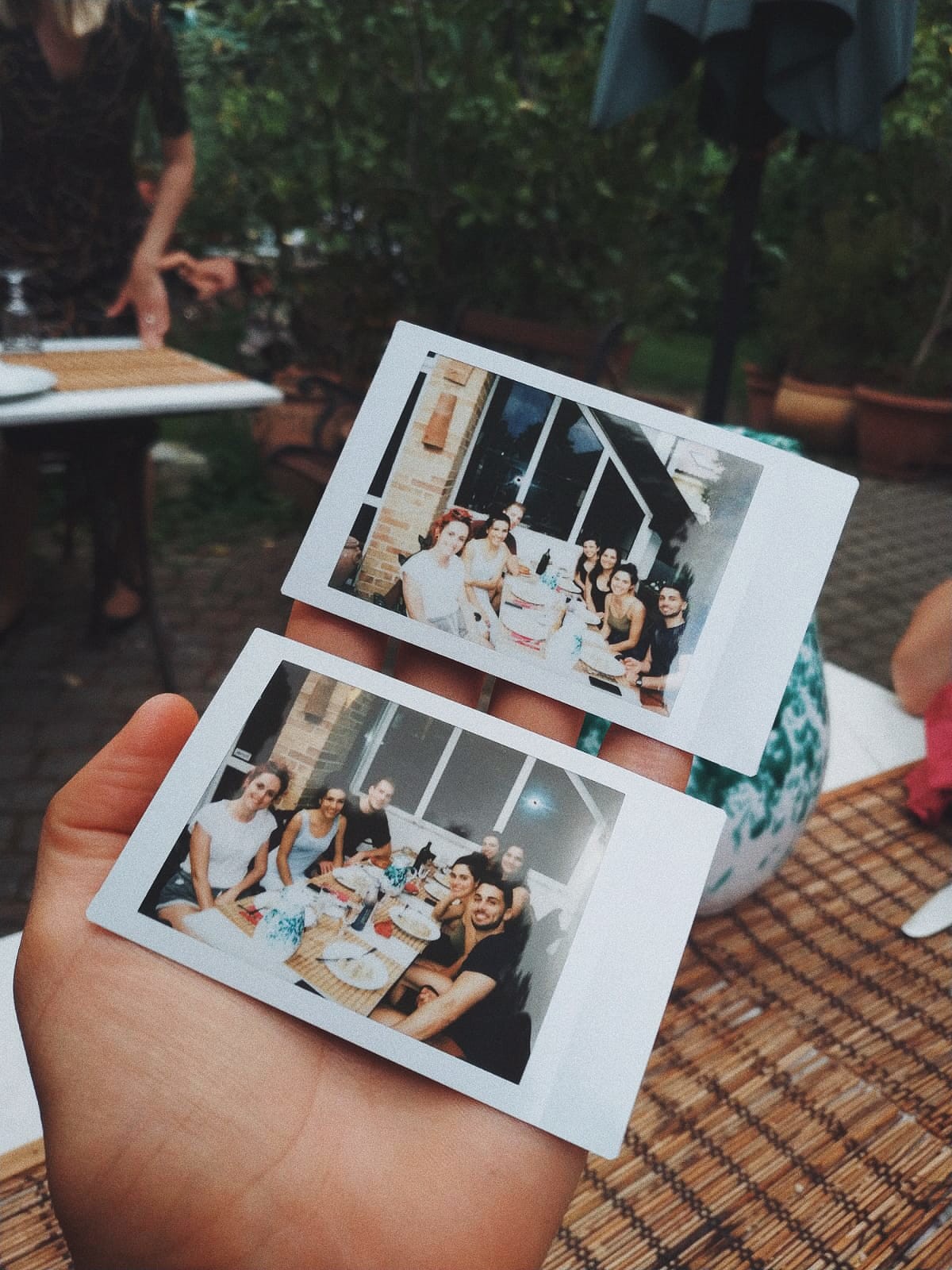
8. The health system
Broadly speaking, there are not loads of differences, as the biggest and most important similarity about the Spanish healthcare system and the Slovakian one is that they are both free. For people who are part of the European Union, you only need to have a valid EHIC card and they will look after you in A and E as if you were another Slovakian person. I had been living for a while here so I had my Slovakian residence card, and therefore, I could choose to have my own GP. This works differently than in Spain. What happens in Spain is that you ask for an appointment in your nearest health centre, with your assigned GP or whoever is available at that time, but it is never your decision - and in the hospital, it is always the same thing. Here, it is different. In Slovakia, you yourself can choose a specific doctor, and each one of them has their own practice in different areas of the city, which in my case was Bratislava. There is a long list of doctors, where they also specify what languages they speak (which is important if you can't express yourself in Slovakian). It is then when you choose the one that you'd like the most, the one that works best for you, and they have to accept you. So, when you want an appointment, you will need to sign yourself up in their free spaces, go to their practice, and then they will see to you. As you can see, this system is quite different from the Spanish one. I don't know if it is because I am used to the Spanish system, but simply the Slovakian one doesn't seem that easy to put into practice. It is a question of getting used to it.
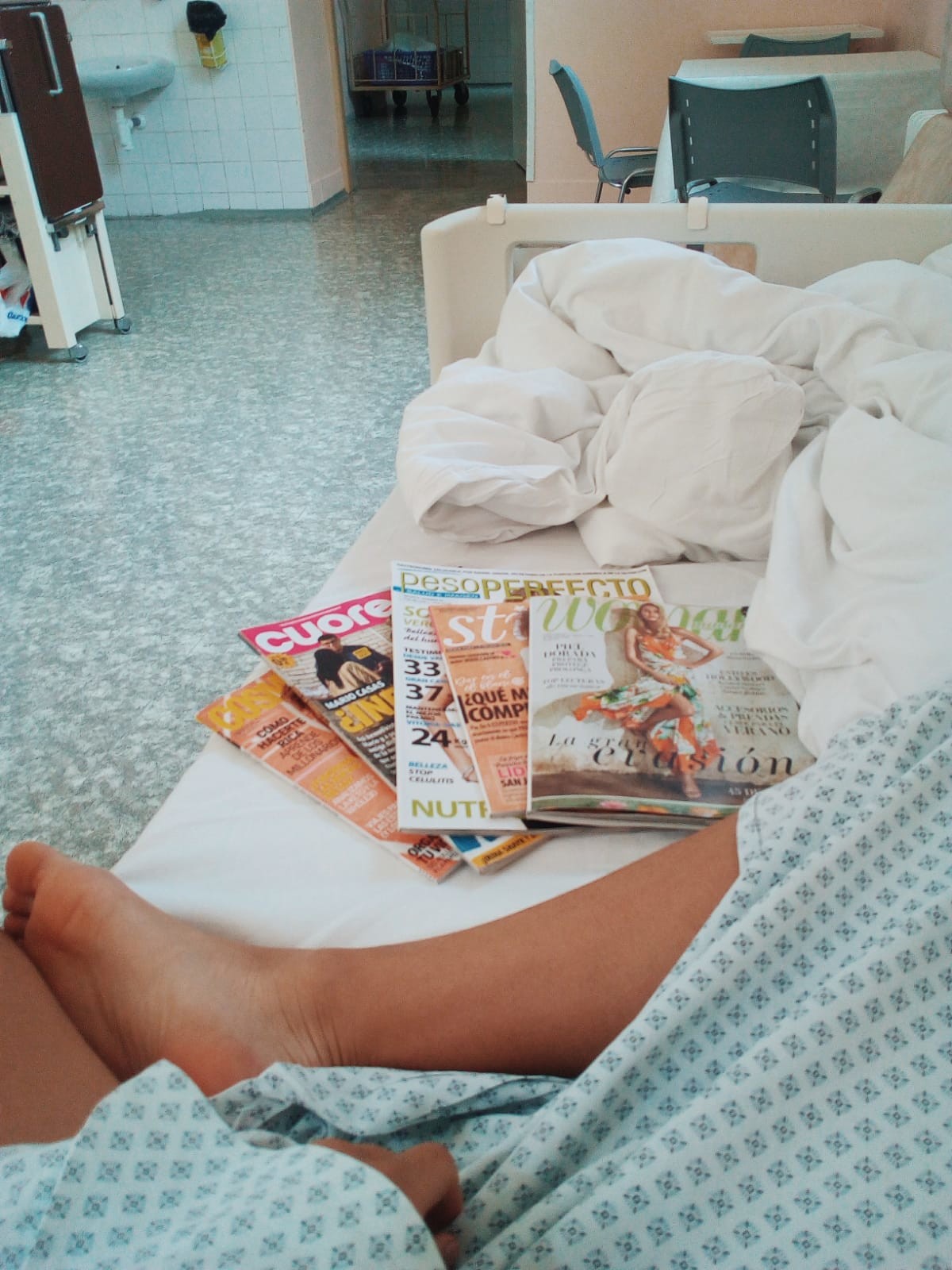
Also, in terms of A and E, this is also a bit different. I had two different experiences. In one, yes I bought a record of my data and gave them to the doctor who was there at the time, so that she could call me when it was my turn. However, a different time, nobody recorded anything and I just had to stay in the corridor and wait until a doctor left the practice to see how many patients there were, and then go in, first come first serve. As is normal, when there is quite a long queue, people get desperate; and when you can't bear the pain, the feeling of uncertainty of how much they are going to look after you can become really agonizing. However, what I saw is that people usually get angry and start to knock on the door of the practice so that they get to them as quickly as possible. The act of knocking on the door is quite common here and isn't anything to be frowned upon. On the contrary, in Spain, this is a very rare occurrence, and personally, it has never occurred to me to do that because of the way our system works.
In terms of visiting hours, here they are a lot stricter. Whatever happens to you and whatever you have, your friends or family can only visit you two hours of the day, from 3 pm to 5 pm, and at the weekend this is extended by one more hour, from 2 pm to 5 pm. In my opinion, these visiting hours don't make sense and aren't long enough. Normally, most people work from 9 am to 4. 30 pm or until 5. 30 pm, so that despite sometimes being given permission from their work to leave early, this is not going to be the case for everyone. Therefore, lots of people could stay there without seeing their families due to these short visiting times. In Spain, it is different because the visiting hours last for practically the whole day, as far as I know. It is even normal that a visitor will stay to sleep with the patient, if this is what they want. It is usually only in certain cases that the doctor's advice that you cannot visit the patient with such great freedom.
And that is everything I wanted to tell you. I hope that you found these cultural clashes which can occur between two such different countries, Spain and Slovakia, interesting. As I told you, I've now been living in Bratislava for a year and a half so that I have experienced all of this stuff first-hand. Obviously, not everyone from Spain or Slovakia is like this, there are exceptions, like I have already said to you. To prove a point, as I am the first to put into practice some of these Slovakian customs. So I'll end it here and I'll see you in the next post with more content. Thank you for reading.
Photo gallery
Content available in other languages
Want to have your own Erasmus blog?
If you are experiencing living abroad, you're an avid traveller or want to promote the city where you live... create your own blog and share your adventures!
I want to create my Erasmus blog! →










Comments (0 comments)